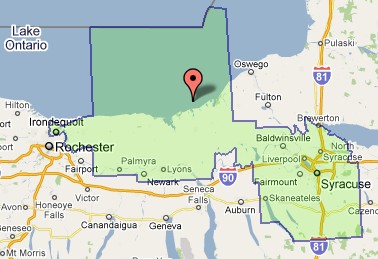Like two peas in a pod, Robert Cyran and Bob Cox are back for the umpteenth time with their views on something. A few years ago, they were upset because the group Radiohead decided consumers should name their own price for one of their albums. This time it’s about Net Neutrality and variable pricing for broadband. Writing for Reuters BreakingViews, they’re deeply concerned poor traditional phone and cable companies are being shortchanged — saddled with the costs of building and maintaining networks that content companies like Google, Apple, Cisco, and Microsoft get to use for free.
As for the four leading [content companies], they have a combined net cash pile of around $140 billion. Last year they spent $4.9 billion on capital expansion, a tenth of what the big four [telecom companies] paid to erect new cell towers, buy routers and extend fiber-optic cables.
[…]The introduction of variable pricing, or charging customers based on the data they consume, will help pay for the needed gear. But it means that the already unpopular [telecoms] will stick their customers with far larger bills — a recipe for political interference. Meantime, the [content companies] would continue to carry away what the telecom operators see as a disproportionate share of the benefits.
This analysis is a mile wide and an inch deep — fundamentally flawed because of information Cyran and Cox either ignored, didn’t know about, or didn’t care to consider.
First, Cisco is hardly a content company. It is doing quite nicely feeding rumors of the forthcoming great tsunami of data — the “zettabyte era of broadband” that will result in a global traffic jam only they can help overcome. Cisco’s success comes from the sale of advanced networking equipment that can manage the growth of the Internet. The amount of data that crosses today’s broadband wires has grown exponentially, even as the costs to manage it are increasingly declining on a per-gigabyte basis. Apple is partly a content company, but more importantly is a developer of devices like the iPad and iPhone which are driving growth in wireless networks and helping justify the acceptance of monthly wireless phone bills easily over $100 a month in many households. Google has content, but is also willing to take a plunge into being a provider itself, with plans to deploy an advanced 1Gbps fiber network that big telecom providers say cannot be built in a sensible way (to their investors.) Finally, love or hate Microsoft, they have successfully powered the growth of personal computing which made the concept of broadband something telecom companies could actually sell to their shareholders as a viable business.
Cyran and Cox equate content providers and big telecom companies as unequal beneficiaries of the broadband revolution. But just like many other powerful interests opposed to Net Neutrality, they forget those big telecom companies earn enormous revenue and profits from their customers — you and I. The financial reports of all of these companies tell the story Cox and Cyran don’t. Broadband profits among large telecom companies are the biggest growth area these companies have. Deploying the service reaps financial windfalls. Even with capital expenses involved in constructing fiber optic networks, broadband revenue can still make shareholders smile like no other component in today’s triple play packages.
On the wired side, Verizon has announced it has suspended further expansion of its fiber network FiOS indefinitely. No other national cable or phone company is currently constructing true fiber to the home networks. Instead, most deploy fiber to the neighborhood and let coaxial or copper wiring cover the rest of the way. Indeed, capital spending by many telecom companies is actually dropping.
On the wireless side, more than 90 percent of Americans now carry cell phones. The monthly prices most pay for service exceeds that of their landline provider, if they have one. Yet for all of the awful costs wireless providers face, AT&T and Verizon can’t wait to devote more time and energy to the wireless side of their business, because that is where the real money can be found.
It’s difficult to claim “victim” status of unequal treatment when you’re standing in a room filled with piles of cash.
The authors also completely ignore the fact companies that produce content don’t just throw it on the web for free. An entire industry devoted to delivery of streaming media and other high bandwidth content buys fat pipelines from these telecom companies to deliver content to consumers. Every content provider already pays their fair share for the traffic they generate. Consumers pick up the rest as part of their monthly bill.
But Cyran and Cox believe these content companies (and consumers) should pay dramatically more to telecom companies for “upgrades” that may or may not materialize, and are frankly just the cost of doing business, which can be recouped from the relatively expensive broadband pricing Americans already pay for service. The profit margins for broadband service are enormous.
Variable pricing, which we consistently call Internet Overcharging, is nothing more than price gouging, and the one true fact in their piece we agree with is that customers will get stuck with the bill.


 Subscribe
Subscribe








